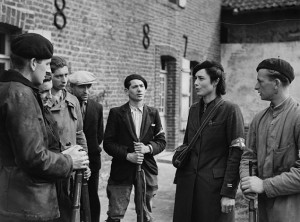Lutheran political scientist James R. Rogers explains things like gay marriage and transgender bathrooms–and the speed with which they became popular in the American mind–by pointing out that all Americans are basically Whigs. That is, they believe that history is about unfolding progress and the progressive emancipation of human beings. Both American liberals and conservatives, in different ways, are Whigs. So are Christians as well as non-Christians. (So let’s bring back the Whig party!)
From James R. Rogers, The Whig Narrative and American Christianity | James R. Rogers | First Things:
Historians deride as “Whig history” accounts that describe history as the ever-progressing movement toward more freedom, equality, and democracy. The Whig narrative is the popular version of Whig history. It sees history as always progressing toward the abolition of arbitrary differences between people: between lord and commoner, free man and slave, man and woman, the propertied and the property-less, black and white, rich and poor, etc. For Americans, America’s Founding is a singularly powerful unfolding of the Whig narrative, and with it the Whig narrative jumps into hyperdrive.
The Whig narrative might also be called the liberal or Progressive narrative. But those labels miss the centrality and breadth of the narrative. American Christians and conservatives imbibe this narrative as deeply as do liberals and Progressives—sometimes even more deeply. All Americans are Whigs, distinguished only by their more-liberal or more-conservative Whiggery.
Though the present-day implications of Whiggery are hostile to Christianity, Whiggery and Christianity walked in tandem in the U.S. for centuries. Many sermons of pre-revolutionary and revolutionary America glided all too easily between the political freedom promised in and by the revolution and the spiritual freedom promised in and by Jesus Christ. Likewise, the (Protestant) Whig narrative of the eighteenth and nineteenth centuries emphasized increasing freedom from superstition (i.e. Catholicism) and from bondage to a foreign potentate (i.e. the pope).
Indeed, it is on the issue of “freedom” that the Christian narrative and the Whig narrative intersect (and diverge). Both narratives value freedom, but they understand it in different ways. For Christians, “freedom” ultimately looks to freedom from bondage to Satan and sin, albeit with implications for bondage to other humans. The Whig narrative adapts the Christian emphasis on freedom, with a different end in view. The Christian narrative has proven persuasive and powerful in the past. Whether it can rival the power of the Whig narrative in the current climate in America is the big question of the moment. (How it might do so, and the likelihood of success, is a topic for future posts.)
The intersection of the Whig narrative and American Christianity was merely tactical; the Whig narrative turned against its Protestant Christian counterpart in the twentieth century. Today, freedom from superstition means rejecting all religious belief, not simply Roman Catholicism. An enslaved conscience now is one that recognizes any religious authority, not simply one that submits to a human pope.



